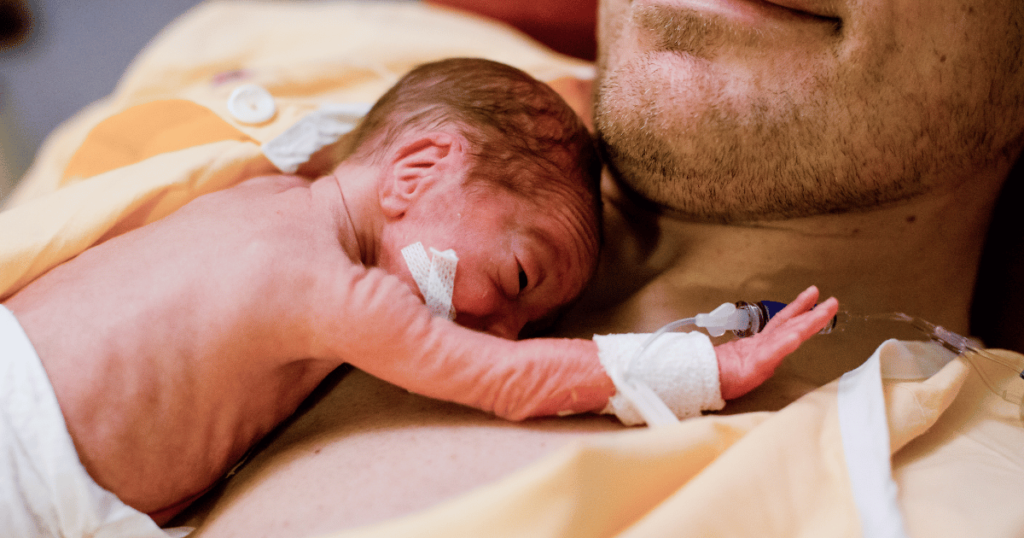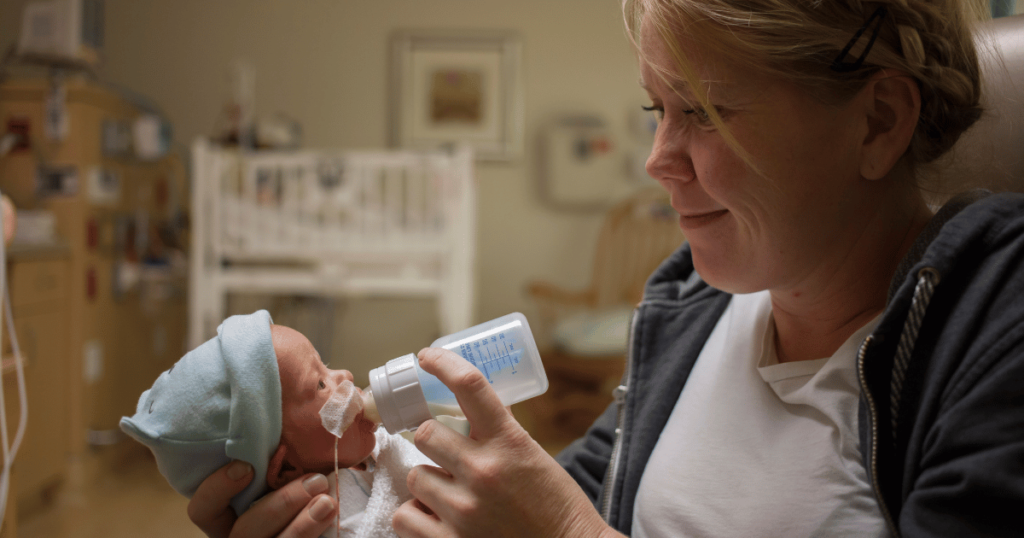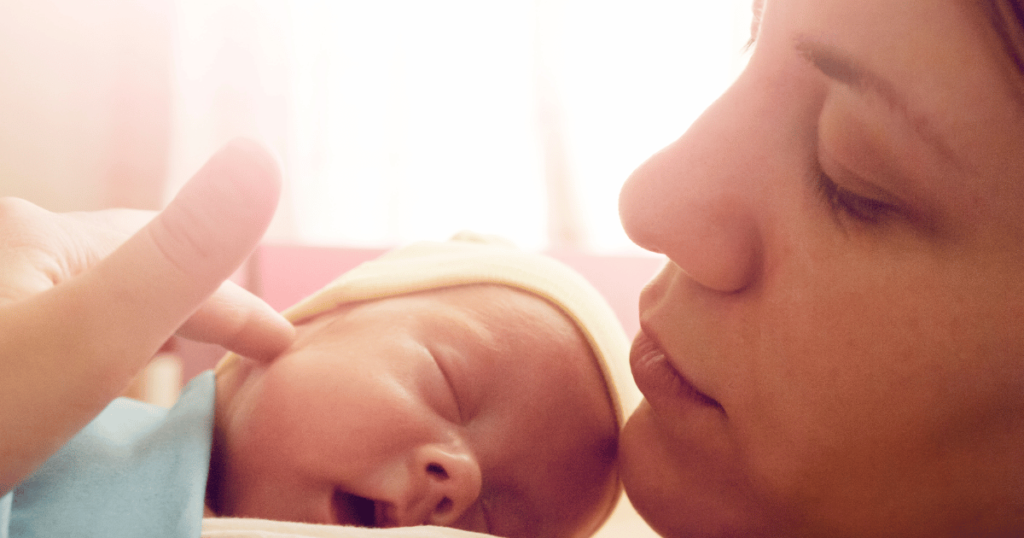Introduction
Premature babies, born before 37 weeks of pregnancy, need extra attention and specialized care. These babies are more fragile and may face unique challenges due to their early arrival. Premature babies may need help with feeding, breathing, and staying warm
In this article, we’ll cover the essentials of premature baby care, how to manage their health needs, and provide tips for parents. You’ll also learn answers to common questions about caring for a premature baby. Let’s explore how you can ensure the best start for your little one.
Why premature baby care is important?

Premature babies often have underdeveloped organs, making them more vulnerable to health issues. This includes breathing problems, feeding difficulties, and weak immune systems. They may spend time in a Neonatal Intensive Care Unit (NICU) before coming home. Premature baby care helps in their physical development, prevents complications, and ensures they grow healthy and strong.
Feeding a Premature Baby

Feeding is one of the most important aspects of premature baby care. Many premature babies may not be ready to breastfeed or bottle-feed right away. They may need special feeding methods, such as tube feeding. Here’s how to ensure proper nutrition for your preemie:
- Breastfeeding
Breast milk is essential for a premature baby’s development. It contains antibodies that help build their immunity. Even if your baby is not ready to latch, you can pump breast milk and have it fed through a feeding tube. For tips on breastfeeding preemies, visit La Leche League International. - Formula Feeding
If breastfeeding is not an option, specialized formula designed for premature babies can be used. Consult with your pediatrician to choose the right formula for your baby’s nutritional needs. - Feeding Tube
In the NICU, many premature babies are fed through a tube that goes directly into their stomach. This method ensures they receive the necessary nutrition until they are strong enough to breastfeed or bottle-feed.
Keeping Your Premature Baby Warm

Premature babies have less body fat, which makes it difficult for them to maintain their body temperature. Maintaining your baby’s warmth is essential for their health.
- Skin-to-Skin Contact
Skin-to-skin contact, also known as kangaroo care, is one of the best ways to keep your baby warm. Holding your baby on your chest helps regulate their body temperature, heart rate, and breathing. It also enhances the bond between parent and baby. You can read more about kangaroo care at March of Dimes. - Incubator
Many premature babies are kept in an incubator while in the NICU. The incubator provides a controlled environment that helps regulate their temperature and protect them from infections. - Dressing Your Baby
Once your baby is home, make sure to dress them in layers. Use soft, breathable clothing and swaddle them in a blanket to keep them cozy. The room temperature should be comfortably warm but not too hot.
Monitoring Premature Baby’s Health

Premature babies need regular health checkups to monitor their development. Some may have conditions that require special care. Here’s how you can keep track of their health:
- Doctor Visits
Premature babies should have frequent pediatric visits to check their growth, weight gain, and overall health. Your doctor will help ensure that your baby is developing well and provide guidance on feeding and care. - Vaccinations
Premature babies are more vulnerable to infections, so it’s important to follow their vaccination schedule. Vaccines will help protect your baby from common illnesses. - Breathing Support
Some premature babies may have breathing problems due to underdeveloped lungs. In the NICU, they may receive oxygen therapy or be connected to a ventilator. Once home, you may need to monitor their breathing closely.
Helping Your Premature Baby Sleep

Sleep is essential for your baby’s development. Premature babies may need extra help to establish a healthy sleep routine.
- Sleep Environment
Ensure your baby sleeps on their back on a firm mattress. Avoid soft toys, pillows, or blankets in the crib to reduce the risk of Sudden Infant Death Syndrome (SIDS). Keep the room at a comfortable temperature and use a sleep sack to keep your baby cozy. - Sleep Patterns
Premature babies may have irregular sleep patterns at first. They may wake up frequently for feeding or because they feel uncomfortable. Over time, they will begin to sleep for longer stretches. - Safe Sleeping Practices
Always place your baby on their back to sleep. Use a firm crib mattress and steer clear of soft bedding. The American Academy of Pediatrics offers helpful guidelines on creating a safe sleep environment for your baby.
Bonding with Your Premature Baby

Bonding with your premature baby may take time, especially if they spend time in the NICU. However, bonding is crucial for your baby’s emotional development. Here are some ways to strengthen your bond with your baby:
- Talk to Your Baby
Your baby recognizes your voice, so talk softly to them often. This helps soothe and comfort your baby. Talking and singing also support their early language development. - Eye Contact
Hold your baby close and make eye contact. Babies love looking at faces, and this helps them feel secure and connected. - Gentle Touch
Touching and holding your baby helps them feel loved and protected. Even if your baby is in the NICU, you can gently stroke their hands or feet through the incubator.
Common Questions About Premature Baby Care
Here are some common questions new parents have about caring for a premature baby:
How long will my baby stay in the NICU?
The length of stay in the NICU depends on your baby’s health and development. Many babies stay until they can breathe, feed, and maintain their body temperature independently.
What should I expect when bringing my premature baby home?
You will need to be extra cautious in the first few months. Keep your baby away from sick people, follow a feeding schedule, and attend regular pediatric visits.
Can premature babies grow up healthy?
Yes, many premature babies grow up healthy and catch up to their full-term peers. With the right care and attention, your baby can thrive.
Do parents of premature babies stay at the hospital with the baby? If not, is there a limit to how much the parents can visit?
Parents of premature babies typically do not stay at the hospital but are encouraged to visit often. Hospitals usually have flexible visiting hours for parents, allowing them to spend as much time as possible with their baby.
Do most premature babies stay in the hospital for 23 days if they don’t have complications?
The length of stay for premature babies depends on factors like birth weight and gestational age, not just complications. Some may stay longer or shorter than 23 days, depending on their individual development and health.
How long would a premature baby that came 18 days early be in the hospital if it is healthy?
A baby born 18 days early (around 37-38 weeks) is considered late preterm and may not need an extended hospital stay if healthy. If there are no complications, they might go home within a few days, like a full-term baby.
Is it possible for a 28-week premature baby to be discharged within less than 2 days in the hospital and not being kept in an incubator?
No, a 28-week premature baby would require specialized care, including time in an incubator, to regulate body temperature and assist with breathing. Babies born this early usually stay in the neonatal intensive care unit (NICU) for several weeks or months.
How important is physical touch for a premature baby to grow while in the hospital?
Physical touch, like skin-to-skin contact (kangaroo care), is crucial for a premature baby’s growth and development. It helps regulate their heart rate, improve breathing, and promote emotional bonding, contributing to better overall health.
What medical care is needed for premature babies?
Premature babies often require specialized care, including respiratory support, temperature regulation in incubators, monitoring for infections, and nutritional assistance through feeding tubes. They may also need extra support for organ development and regular health checks.
How do you care for a premature baby at home?
Caring for a premature baby at home involves creating a quiet, clean environment, following the baby’s feeding schedule, monitoring their temperature, and ensuring regular pediatric checkups.
How can I help my premature baby gain weight?
To help a premature baby gain weight, focus on consistent, small feedings of breast milk or formula, ensure adequate rest, and follow any special feeding guidelines from healthcare providers.
When can a premature baby leave the hospital?
A premature baby can typically leave the hospital when they can maintain body temperature, breathe without assistance, feed properly, and reach a stable weight, often around their due date.
What special care does a premature baby need?
Premature babies need extra care such as controlled temperature, frequent feedings, respiratory support if needed, and close monitoring for developmental progress.
How can I bond with my premature baby?
Bonding with a premature baby can be enhanced through skin-to-skin contact (kangaroo care), soft talking, gentle touch, and spending as much time as possible with the baby in a calm environment.
Final Thoughts on Premature Baby Care
Caring for a premature baby can feel challenging, but with the right support, you can ensure your baby’s health and development. Focus on providing proper nutrition, keeping them warm, monitoring their health, and creating a safe sleep environment. Regular visits to the pediatrician and close monitoring will help you track your baby’s progress.
Remember, every baby is unique, so trust your instincts and take things one step at a time. If you have concerns, reach out to your doctor for advice. With love and care, your premature baby will grow strong and healthy.
Other References
- American Academy of Pediatrics (AAP)
- What to Expect – March of Dimes
- KidsHealth from Nemours
- American Dental Association (ADA)
- WebMD
- What to Expect
- BabyCenter
- Verywell Family
- The Spruce
- Healthy Children
More to Read
- How to bathe a newborn baby in 13 steps: The comprehensive guide
- Getting the temperature just Right: A guide to baby bath water
- Bath Time: How often should you wash your little one
- Baby Bathtubs: The Best 5 Ways to Store Baby Bathtubs in 2024
- 4 Steps to Choose a Collapsible Baby Bathtub in 2024
- The Best 5 Baby Bathtubs for Small Space in 2024
- The Best 5 Inflatable Baby Bathtubs In 2024



